Somaliland
A New U.S.–Somaliland Mining Partnership
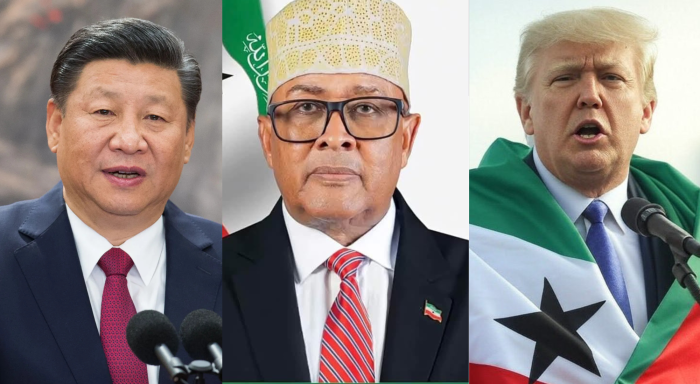
A Rare Opportunity in the Horn of Africa
Introduction:
The world’s appetite for critical minerals is soaring. Metals like lithium, cobalt, and rare earth elements (REEs) form the backbone of modern technologies and clean energy – and demand is projected to explode (lithium demand alone could increase tenfold by 2050) (The strategies driving the players in competition for Africa’s critical minerals – Atlantic Council). Yet today, China dominates the supply chain, controlling about 60% of critical mineral production and 85% of processing globally (The strategies driving the players in competition for Africa’s critical minerals – Atlantic Council). This near-monopoly poses a strategic vulnerability for the United States. To secure its industrial future and national security, America must diversify its sources of these vital materials. An unlikely ally in this quest lies in the Horn of Africa: Somaliland – a stable, self-governing democracy with untapped mineral riches and a pro-Western orientation.
Somaliland, though not internationally recognized, has quietly emerged as a potential treasure trove of critical minerals. Recent explorations indicate significant deposits of rare earth elements, lithium, and other strategic metals under its soil. Tapping these resources via U.S. partnerships would not only bolster America’s supply chains but also strengthen a friendly government in a geostrategic location. This report makes the case – in strategic, economic, and geopolitical terms – for why American policymakers and investors should forge U.S.–Somaliland mining partnerships focused on critical minerals. By doing so, the U.S. can reduce dependence on China, enhance national security, and foster development in Somaliland, to mutual benefit.
Somaliland’s Untapped Critical Mineral Riches
Somaliland’s geology is highly prospective yet under-explored. The territory is known to host a wide array of minerals, from precious metals to industrial ores. Official surveys list gold, copper, nickel, platinum, tin, and coltan (tantalite) among the promising targets (Mining). There are also encouraging signs of battery metals: a United Nations geochemical survey found anomalous traces of lithium, and local experts believe cobalt could be present alongside copper and nickel deposits (Mining). Notably, rare earth elements (REEs) – the group of 17 metals essential for electronics and defense – are thought to exist in “huge” quantities in Somalia/Somaliland (Minerals of Somalia – Page 8 – Mereja.Forum). Some sources even claim Somalia (which Somaliland broke away from in 1991) holds Africa’s largest known nickel reserves (Minerals of Somalia – Page 8 – Mereja.Forum), hinting at world-class potential if properly explored.
For decades, these mineral riches remained locked in the ground due to Somaliland’s isolation and lack of recognition. But signs of change have emerged recently. In June 2024, Somaliland inked a deal with Saudi mining firm Kilomass to explore lithium – a landmark foreign investment in its mining sector (Saudi Mining Company Kilomass Secures Lithium Exploration Deal in Somaliland – Somaliland Chronicle). Lithium, used in batteries, is one of the world’s most sought-after resources. Kilomass’s entry underscores that Somaliland’s lithium deposits are considered significant and potentially lucrative on the global market. Indeed, Somaliland’s Ministry of Energy and Minerals has indicated that lithium is present and attracting international attention (Saudi Mining Company Kilomass Secures Lithium Exploration Deal in Somaliland – Somaliland Chronicle).
American and allied interests have taken notice. U.S. Congressman Chris Smith recently highlighted Somaliland’s strategic mineral wealth during a congressional hearing, noting that “significant lithium deposits [were] recently discovered in Somaliland” and that a Taiwanese firm is keen to invest (#congressman #dfc #sustainableenergy #lithiumproject #sustainableenergy… | Orina Chang 張綺真). This is a crucial development: Taiwan (a U.S. partner) formed a mining cooperation agreement with Somaliland in 2022 (Taiwan signs the Energy and Mineral Resources Cooperation Agreement with Somaliland – Somaliland Chronicle), and Taiwanese companies are now among those pursuing Somaliland’s minerals. In fact, Taiwan’s state-owned CPC Corp. has already taken a 49% stake in an oil exploration block in Somaliland (Taiwan signs the Energy and Mineral Resources Cooperation Agreement with Somaliland – Somaliland Chronicle), and is reportedly eyeing the mining sector next. Taipei’s involvement signals both confidence in Somaliland and a shared interest in countering China’s resource dominance.
Somaliland’s government is eager to capitalize on this momentum. It has issued new exploration licenses and promoted its mining potential in recent years (Mining). The country remains, in its own words, “highly prospective yet very underexplored” (Mining). This means low-hanging fruit: large swathes of terrain have never been systematically surveyed with modern techniques, so the odds of additional finds (from rare earth oxides to lithium-bearing pegmatites) are high. For American investors, Somaliland represents a ground-floor opportunity to discover and develop critical mineral sources that could rival those in better-known locales. The next big rare earth or lithium find might well be made in Somaliland – and early partners will reap the rewards.
Geopolitical Edge: Diversifying Away from China
Beyond the raw mineral potential, Somaliland offers a compelling geopolitical advantage: partnering here helps bypass China-centric supply chains. Today, Beijing has leveraged its financial clout in Africa to lock down huge swathes of minerals – from cobalt in Congo to graphite in Mozambique (The strategies driving the players in competition for Africa’s critical minerals – Atlantic Council). It has also built refining capacity such that even non-Chinese mines often must send ore to China for processing. The result is a fragile reliance: China could squeeze global tech industries by restricting exports (as it has hinted with rare earths (China imposes new export restrictions on rare earths, escalates …)), or use its dominance as diplomatic leverage.
Somaliland, however, sits outside China’s umbrella. The Somaliland government has forged close ties with Taiwan, implicitly positioning itself against the Chinese Communist Party’s influence. Unlike many African states, it has received no Chinese Belt and Road funds (Somaliland’s key port development is backed by the UAE, not China). In fact, Chinese officials have largely shunned Somaliland due to its Taiwan relationship. This means U.S. investors in Somaliland would face far less Chinese competition or interference compared to elsewhere on the continent.
(The US State Department Puts China First on Rare Earth Metals | Saxafi Media)According to policy analysts, by ignoring Somaliland in the past the West effectively “allowed China to monopolize rare earth metals crucial for modern tech.” Beijing is certainly aware of Somaliland’s mineral potential – Somaliland officials say Chinese companies have aggressively sought mining concessions in the region (The State Department Puts China First on Rare Earth Metals). There are even reports that Chinese actors have tried to incite instability (such as stoking conflict in Somaliland’s Sool region) to scare off rival investors and keep these resources inaccessible (The US State Department Puts China First on Rare Earth Metals | Saxafi Media). All of this underlines a simple point: Somaliland is a strategic prize in the critical minerals race. If the U.S. doesn’t step up, China or other players will fill the void.
For American policymakers, supporting Somaliland’s mining industry serves multiple aims. First, it secures alternative supply: every ton of rare earth or lithium sourced from Somaliland is one less ton sourced from China or Chinese-controlled channels. This directly strengthens U.S. economic security and defense readiness, given these minerals’ use in everything from fighter jet avionics to electric vehicle batteries. As an example, the Pentagon has struggled with 100% reliance on Chinese rare earth magnets for precision-guided munitions; a Somaliland supply could be a future remedy. Second, a U.S.–Somaliland partnership would demonstrate a counter-model to China’s approach. Rather than exploitative contracts that leave African nations deep in debt (a hallmark of some Beijing deals), the U.S. can offer equitable investment that develops local capacity. Somaliland, with its pro-democracy values and pro-Western leanings, is an ideal place to showcase this difference.
Finally, there is a grand-strategic angle: anchoring a friendly, democratic Somaliland firmly in the U.S. camp. Somaliland sits at the mouth of the Red Sea, adjacent to one of the world’s busiest shipping lanes. A strong U.S. commercial presence there – via mining ventures and related infrastructure – complements America’s security interests (neighboring Djibouti already hosts a U.S. military base; Somaliland’s port of Berbera could be an additional logistics hub in the future (Somalia Offers US Control Over Strategic Ports to Block Somaliland Recognition) (Somalia Offers US Control Over Strategic Ports to Block Somaliland Recognition)). It also denies that foothold to America’s rivals. By investing in Somaliland, Washington would deepen a relationship that Beijing cannot easily counter, given China’s refusal to recognize Somaliland and Somaliland’s distrust of Chinese intentions. In essence, critical minerals cooperation could be the cornerstone of a broader strategic partnership with Somaliland, solidifying an outpost of pro-American stability in the Horn of Africa.
A Stable Frontier for Investment: Somaliland’s Governance & Security
From an investor’s standpoint, Somaliland offers surprising stability in a volatile region. While Somalia to its south remains plagued by Al-Shabaab terrorism and political chaos, Somaliland has enjoyed peace and self-governance for over 30 years. It has held multiple democratic elections, established a functioning legal system, and maintains its own security forces. For American companies used to operating in high-risk African environments, Somaliland might prove refreshingly orderly. The rule of law is stronger here than in many recognized African states: contracts with the Somaliland government (such as the DP World port deal) have been honored and enforced domestically.
Somaliland’s legal framework for mining is a work in progress but improving. The Ministry of Energy and Minerals issues licenses for prospecting and mining, and in recent years it has introduced production-sharing agreements for small-scale mining to formalize the sector (Mining – Wasaaradda Tamarta iyo Macdanta) (Mining – Wasaaradda Tamarta iyo Macdanta). As with any frontier market, due diligence is key – the government has admittedly had mishaps with dubious “investors” in the past (Saudi Mining Company Kilomass Secures Lithium Exploration Deal in Somaliland – Somaliland Chronicle). But lessons have been learned; officials are implementing better oversight to vet partners. Crucially, Somaliland’s leaders are highly motivated to make foreign investments work – their quest for international recognition incentivizes them to uphold agreements and build a positive track record. In practical terms, a U.S. mining venture in Somaliland would likely receive red-carpet treatment and robust political support from the host government.
Security, while always a concern, is relatively robust in Somaliland’s main regions. The capital Hargeisa and the vital Berbera corridor are firmly under government control and have seen virtually no terrorist attacks in over a decade. The Somaliland Army and police provide site security for existing foreign operations (e.g. guarding oil exploration crews). U.S. officials have quietly noted Somaliland’s strong counterterror performance in a tough neighborhood (Somalia Offers US Control Over Strategic Ports to Block Somaliland Recognition) (Somalia Offers US Control Over Strategic Ports to Block Somaliland Recognition). One localized conflict did erupt recently in the eastern city of Las Anod, where clan militias (reportedly with external meddling) challenged Somaliland’s authority. However, that fighting is hundreds of kilometers away from the western regions likely to host mining operations (where known mineral prospects like lithium-bearing rocks are found in Gabiley and Sahil regions). It is also an outlier in an otherwise stable polity. By and large, Somaliland has avoided the resource-fueled conflicts that beset places like eastern Congo. There are no rebel armies or militant insurgencies controlling mining areas – a critical distinction that de-risks any project.
The remaining challenges are more logistical: building some local capacity, and navigating the lack of international banking links (since Somaliland isn’t formally recognized, international banks approach it cautiously). However, creative solutions exist – for instance, using regional banking hubs or local subsidiaries. The U.S. government can also mitigate these issues through political support (more on that below). In sum, Somaliland presents a governance environment conducive to responsible mining: a democratic ethos, reasonable security, and a government eager to enforce norms if it means attracting reputable investors. For American companies worried about resource nationalism or contract breaches, Somaliland’s record so far is reassuring.
The Berbera Advantage: World-Class Port and Logistics
(Somalia Offers US Control Over Strategic Ports to Block Somaliland Recognition) Strategic Infrastructure: One of Somaliland’s strongest assets is the Port of Berbera, a deep-water port on the Gulf of Aden that offers a direct outlet for exports to Middle Eastern, European, and Asian markets. In partnership with Dubai’s DP World, Somaliland has transformed Berbera into a modern logistics hub. A brand-new container terminal opened in 2021, increasing the port’s capacity to 500,000 TEU per year and capable of servicing some of the largest ships in the world (DP World and Somaliland open new terminal at Berbera Port, announce second phase expansion and break ground for Economic Zone – India Shipping News). DP World has committed $442 million to further expand Berbera – extending the quay to 1,000 meters and adding state-of-the-art cranes, which will boost throughput up to 2 million TEUs annually in a second phase (DP World and Somaliland open new terminal at Berbera Port, announce second phase expansion and break ground for Economic Zone – India Shipping News). Alongside the port, a Berbera Free Economic Zone is being developed to house manufacturing and processing ventures (DP World and Somaliland open new terminal at Berbera Port, announce second phase expansion and break ground for Economic Zone – India Shipping News).
For mining operations, this infrastructure is pure gold. Somaliland’s minerals can be efficiently trucked to port and shipped worldwide without transiting a third country. This is a huge logistical advantage over landlocked mining regions elsewhere in Africa. An expanded Berbera Port means even large volumes of heavy ore or concentrate can be loaded quickly onto vessels. Additionally, the Berbera Corridor – a newly paved highway from Berbera to the Ethiopian border – is nearing completion, funded by the UK and UAE (DP World and Somaliland open new terminal at Berbera Port, announce second phase expansion and break ground for Economic Zone – India Shipping News). This corridor not only opens Somaliland’s interior and neighboring Ethiopia for trade, but it ensures that mining sites in Somaliland’s interior have a reliable road to the coast. By the end of 2022, the main highway and an alternate bypass around Hargeisa were largely finished (DP World and Somaliland open new terminal at Berbera Port, announce second phase expansion and break ground for Economic Zone – India Shipping News). In practical terms, a mining company could move equipment from ship to mine, or minerals from mine to ship, with relative ease and predictability.
Berbera’s strategic location adds further value. It sits just 8 days sailing from the Suez Canal, considerably closer to European markets than ports in South Africa or even Tanzania. It also provides a straight shot across the Indian Ocean to supply East Asia. For the U.S., utilizing Berbera could shorten supply lines for critical mineral imports. Moreover, as a redundant node in global shipping, Berbera diversifies routes away from chokepoints that might be influenced by China. The port is already drawing interest as an alternative to Djibouti for regional trade (Berbera Port Being Slated As An Alternative To Djibouti For East African Trade | Saxafi Media) (Berbera Port Being Slated As An Alternative To Djibouti For East African Trade | Saxafi Media). As it scales up, Berbera could handle specialized cargo like mineral concentrates or rare earth oxides with dedicated facilities. The Somaliland government has indicated interest in establishing on-site mineral processing (e.g., concentrate plants) in the Berbera free zone, which would add value before export and create local jobs.
There’s also a national security kicker: Berbera used to host U.S. military facilities during the Cold War and has an adjacent airfield with one of Africa’s longest runways. Somaliland has openly offered the U.S. access to Berbera in exchange for closer ties (Somalia Offers US Control Over Strategic Ports to Block Somaliland Recognition). While this report’s focus is economic, policymakers should note that a mining partnership could dovetail with logistical use of Berbera for U.S. forces. For example, equipment and material for mining projects could share infrastructure with any future U.S. military presence, reducing costs. Even absent a formal base, having U.S. companies active in Berbera increases American influence over a port that is strategically situated on the Red Sea (a waterway China also patrols from its base in Djibouti). Simply put, Berbera is a jewel of a port – and any mining venture in Somaliland can leverage it to great effect. The U.S. should see Somaliland’s logistics not as a hurdle, but as a major selling point that can expedite development and export of critical minerals swiftly to global markets.
U.S. Government Tools to Support a Strategic Partnership
Launching a successful U.S.–Somaliland mining partnership will require more than just private-sector interest; U.S. government support can be the catalyst to overcome initial barriers. Fortunately, Washington has several instruments ready for deployment:
- Development Finance Corporation (DFC): The U.S. DFC is empowered to fund projects in developing regions that advance U.S. interests. Backing critical minerals certainly qualifies. DFC can provide political risk insurance, debt financing, or equity investment to companies investing in Somaliland’s mining. This kind of support sends a strong signal – essentially underwriting the risk of the unrecognized status. Notably, DFC has already shown interest: in 2023, a private entrepreneur thanked Congressman Chris Smith and DFC for “backing the lithium project [she is] undertaking in Somaliland,” following a congressional hearing (#congressman #dfc #sustainableenergy #lithiumproject #sustainableenergy… | Orina Chang 張綺真). While details are sparse, this suggests DFC is exploring ways to facilitate a Somaliland lithium venture, potentially in coordination with Taiwan’s own development finance institution (#congressman #dfc #sustainableenergy #lithiumproject #sustainableenergy… | Orina Chang 張綺真). Going forward, the DFC should formally prioritize Somaliland as a target country for critical mineral projects. Even a modest $50-$100 million loan or guarantee could be game-changing in attracting larger private investments.
- Export-Import Bank (EXIM): EXIM Bank can be leveraged to equip Somaliland’s mining industry with American-made machinery and services. For example, if a U.S. contractor is building a mine or a processing plant, EXIM can insure the receivables or extend credit, making it easier for Somaliland’s government or local partners to afford top-tier U.S. equipment. This has a dual benefit: it secures a sale for U.S. exporters (creating jobs at home) and ensures the project uses high-quality tech, increasing its chances of success. EXIM could also offer loan guarantees for offtake agreements – say, guaranteeing payment for a certain volume of rare earth concentrate purchased by a U.S. magnet manufacturer from Somaliland. Such mechanisms reduce market risk. Given Somaliland’s small economy, early projects might need creative financing; EXIM’s involvement would show that the U.S. stands behind the venture, unlocking capital from commercial banks that might otherwise hesitate.
- Department of Defense (DOD) and Strategic Stockpiles: The Pentagon has a keen interest in secure supplies of minerals like rare earths, cobalt, and lithium, which are critical for jets, drones, satellites, and batteries for military use (The US State Department Puts China First on Rare Earth Metals | Saxafi Media). Under the Defense Production Act and related authorities, DOD can directly invest in mining or refining projects deemed vital to national security. Already, the DOD has funded rare earth processing facilities in the U.S. and allied countries. It could extend similar support to Somaliland’s value chain. For instance, DOD might fund a feasibility study for a rare earth separation plant in Somaliland or agree to stockpile a certain amount of Somaliland-sourced minerals annually. By becoming an early buyer (through the U.S. National Defense Stockpile), DOD would provide guaranteed demand, which in turn makes investors more comfortable with financing a mine. Additionally, DOD’s logistical expertise could assist in safely transporting high-value mineral shipments from Somaliland to the U.S. or allied processing facilities, perhaps using secure channels if needed. All of this would be justified by the imperative to diversify away from Chinese-controlled sources – a message that resonates strongly in Congress.
- Diplomatic and Technical Support: While not a financing tool per se, U.S. diplomacy can smooth the path for Somaliland’s integration into global markets. The State Department can negotiate understandings with neighboring countries (and with Somalia’s federal government in Mogadishu, which contests Somaliland’s status) to respect Somaliland’s economic autonomy in mining. This would help prevent any legal challenges or interference. On the technical side, the U.S. Geological Survey (USGS) could be dispatched to conduct joint surveys and training. USGS has done this successfully in other countries, mapping resources and publishing data that encourages investment. A USGS-led critical minerals survey in Somaliland – perhaps funded by USAID – would provide an independent validation of Somaliland’s resource estimates and could discover new mineralization zones. Such an initiative could be part of a wider capacity-building program: training Somaliland geologists, environmental regulators, and mine safety inspectors to ensure that as mining ramps up, it meets international best practices. This proactive approach would help avert issues of mismanagement and align with the U.S. emphasis on responsible sourcing (no child labor, conflict-free minerals, etc.).
In combination, these tools form a whole-of-government backing for U.S. miners and investors willing to venture into Somaliland. Policymakers should treat Somaliland’s critical minerals initiative as a pilot project for the DFC-EXIM-DoD cooperation that has been envisioned in recent strategy documents about securing supply chains. By coordinating their support, these agencies can dramatically reduce the perceived risk and upfront costs. It’s worth noting that Somaliland’s officials have explicitly courted such U.S. support – the Foreign Minister has met members of Congress to pitch opportunities (Orina Chang 張綺真 on LinkedIn: #congressman #dfc …). The door is open for Washington to walk through with a package that might include, for example: a DFC loan, an EXIM guarantee, a DoD offtake agreement, and a USGS survey team on the ground. That kind of comprehensive backing would virtually ensure that one or more major U.S. companies decide to jump in.
Roadmap: From Talk to Action – Initiating Bilateral Mining Cooperation
How can the U.S. and Somaliland move from goodwill to concrete projects? Below are recommended steps to initiate mining partnerships and the incentives to make them a success:
- Sign a Critical Minerals Memorandum of Understanding (MOU): The U.S. government (through the State Department or Department of Commerce) should negotiate an official MOU with Somaliland focused on mining cooperation. This would be similar to the Taiwan-Somaliland agreement of 2022 (Taiwan signs the Energy and Mineral Resources Cooperation Agreement with Somaliland – Somaliland Chronicle), establishing a joint working group on energy and mineral resources. An MOU, even if not a formal treaty, gives political cover to U.S. agencies to engage with Somaliland’s ministries directly. It can outline commitments such as information-sharing, facilitation of visas for experts, and a roadmap for progressing specific projects (e.g. identifying priority mineral targets and funding pre-feasibility studies). Essentially, it acknowledges Somaliland as a legitimate partner for the U.S. in this domain, which is a big psychological (and diplomatic) boost.
- Open a U.S. Presence in Hargeisa: To reassure investors and coordinate efforts, the U.S. should establish at least a small commercial or liaison office in Somaliland’s capital. In early 2023, a U.S. House subcommittee even called for a representative office in Hargeisa (Somalia Offers US Control Over Strategic Ports to Block Somaliland Recognition). This office, staffed perhaps by USAID or Commerce officials, would help American businesses navigate local regulations and liaise with Somaliland authorities daily. It would also signal to the world that the U.S. is “present” in Somaliland (short of full embassy recognition). For investors, knowing that U.S. officials are on the ground to troubleshoot issues (from customs clearance to contract disputes) greatly increases confidence. Somaliland has indicated it would welcome a U.S. office wholeheartedly. This step can be done relatively quickly and at low cost, and would pay dividends in smoother operations for any partnership.
- Extend Trade Preferences and Legal Clarity: The U.S. should treat Somaliland-origin minerals as eligible for any applicable trade benefits. For instance, if rare earth oxides or processed lithium from Somaliland are imported to the U.S., they should enter with minimal tariffs under programs like the African Growth and Opportunity Act (AGOA). (Somaliland is not a separate AGOA beneficiary currently, but the U.S. could administratively allow imports as “Somalia” origin to qualify, or explicitly add a special line for Somaliland). Additionally, the U.S. Treasury and Commerce departments should issue guidance to banks and businesses clarifying that doing business in Somaliland does not violate U.S. laws or sanctions. One hurdle today is uncertainty: companies aren’t sure if engaging Somaliland might upset relations with Somalia’s recognized government. A quiet understanding or public statement from the State Department that the U.S. supports direct economic engagement with Somaliland in the critical minerals sector would remove that ambiguity. In short, make it legally and financially straightforward to transact with Somaliland entities.
- Incentivize Somaliland with Development and Security Aid: To solidify the partnership, the U.S. can offer Somaliland a package of development projects and security cooperation tied to mining progress. For example, the Millennium Challenge Corporation (MCC) could be encouraged to consider Somaliland for a threshold program focusing on infrastructure (perhaps upgrading roads from mining areas to Berbera). On the security side, the U.S. Africa Command could expand training for Somaliland’s coast guard and police, specifically to help them build capacity to protect port facilities and mining sites. If Somaliland sees tangible benefits on multiple fronts – not just extraction of its minerals – it will deepen cooperation. One imaginative incentive: Somaliland has sought international recognition for decades; while the U.S. may not grant that outright, it could enhance Somaliland’s international stature by inviting it to observe regional initiatives or including its officials in technical training programs alongside recognized states. Such gestures, tied to good performance on mining governance, would encourage Somaliland to uphold high standards. The carrot for Somaliland’s leaders is clear: with U.S. support, their country could see jobs, revenue, and perhaps a step closer to the global acceptance they crave.
- Secure Offtake Agreements and Stockpile Commitments: As a final step to get a mining project off the ground, U.S. entities (private or public) should lock in offtake agreements – contracts to buy Somaliland’s mineral output. For instance, a U.S. battery manufacturer could agree to purchase X tons of Somaliland lithium per year once produced. The U.S. government can facilitate these introductions. Additionally, as mentioned, the U.S. National Defense Stockpile could commit to purchase and store a certain amount of rare earth or cobalt from Somaliland. These agreements guarantee a market for Somaliland’s exports, making it much easier to finance the mines. They also fast-track the integration of Somaliland’s minerals into U.S. supply chains upon production. The goal is that by the time a mine is built, the sale of its first 5–10 years of output is already arranged with reliable buyers (ideally American or allied). This greatly reduces commercial risk.
If these steps are pursued in parallel, we could envision within 2-3 years the launch of a flagship U.S.–Somaliland mining venture – perhaps a lithium mining and processing project in partnership with a Somaliland company and Taiwanese technical advisors, financed by DFC and supplied with Caterpillar (U.S.) equipment via EXIM. In return, the lithium hydroxide produced could be sold to U.S. battery factories, with a portion reserved for the DOD. Meanwhile, Somaliland would receive lease payments, royalties, jobs for its people, and ancillary investments in roads and schools around the mining area. That template, once proven, could be replicated for rare earth elements or other minerals in Somaliland’s resource portfolio.
It’s important to highlight Somaliland’s own responsibilities in this roadmap. The government will need to continue improving the business climate – implementing transparent regulations, ensuring community consent and benefit-sharing in mining areas, and combating corruption. Case studies from Botswana’s diamond industry and Mongolia’s copper mines show that a stable policy environment is key to sustaining investment (Saudi Mining Company Kilomass Secures Lithium Exploration Deal in Somaliland – Somaliland Chronicle) (Saudi Mining Company Kilomass Secures Lithium Exploration Deal in Somaliland – Somaliland Chronicle). Somaliland should be encouraged to adopt best practices like publishing all mining contracts, adhering to the Extractive Industries Transparency Initiative (EITI) standards, and dedicating a portion of mining revenues to local development in mining regions. If Somaliland demonstrates such good governance, it will strengthen the argument in Washington that supporting this “breakaway” state is a worthy and values-driven endeavor.
Conclusion: Security, Prosperity, and a ‘Win-Win’ Future
In the high-stakes arena of critical minerals, Somaliland presents a rare opening for the United States to advance its interests on multiple fronts. By investing in Somaliland’s mining potential, the U.S. can secure new supply chains for vital resources, undercut China’s monopoly, and uplift a small democracy that aligns with American values. This is the kind of strategic, win-win partnership that is too often missing in international development. Somaliland’s leaders often refer to their land as “Treasury Island” – a store of hidden wealth waiting to be unlocked (Taiwan signs the Energy and Mineral Resources Cooperation Agreement with Somaliland – Somaliland Chronicle). With American engagement, that wealth could be realized in a way that benefits both Somaliland’s 4 million citizens and the broader free world’s industrial needs.
For American policymakers, supporting U.S.–Somaliland mining ventures is a chance to demonstrate leadership in Africa on a critical issue, without the baggage of legacy complications. Somaliland, unencumbered by recognition politics in this context, is essentially a greenfield where American ingenuity and ethical business can take root, free from direct Chinese control. Every rare earth magnet, lithium battery, or advanced microchip that uses inputs from Somaliland is one made with less reliance on Beijing – a small yet significant shift toward supply chain security. As Michael Rubin of AEI warned, U.S. narrow focus on Mogadishu in the past overlooked a stable, pro-West Somaliland and “allowed China to monopolize rare earths crucial for modern tech” (The US State Department Puts China First on Rare Earth Metals | Saxafi Media). We now have an opportunity to correct that oversight and break China’s grip by bringing Somaliland into the fold.
From an investor perspective, early movers in Somaliland could position themselves at the forefront of the next big mineral discovery. The groundwork laid by Taiwan and others means much of the risk has been mitigated. If the U.S. government backs its rhetoric with resources – via DFC financing, policy support, and perhaps even defense tie-ins – then the path is clear for bold American companies to step in. The payoff could be enormous: imagine a future where a significant percentage of U.S. rare earth imports come not from adversary-controlled sources, but from a friendly Somaliland-U.S. joint venture, mined under African sun and shipped from the Red Sea straight to American factories. That scenario would have seemed far-fetched a few years ago; today it is within reach.
In conclusion, pursuing U.S.–Somaliland mining partnerships is strategically sound, economically sensible, and morally positive. It exemplifies the kind of innovative thinking required to secure critical supply chains in an era of great power competition. Policymakers and investors should seize this moment to build a lasting alliance with Somaliland. By doing so, the United States can cement its status as both a global technological leader and a principled partner to those who share its vision of a free, secure, and prosperous world. The mines of Somaliland, long dormant, are ready to roar to life – and with them, a new chapter in U.S.–Africa cooperation can begin, to the benefit of both American national security and Somaliland’s future.
Sources:
- Somaliland Ministry of Investment – Mining Potential Overview (Mining) (Mining)
- Somaliland Chronicle – Saudi Mining Company Kilomass Secures Lithium Deal (June 11, 2024) (Saudi Mining Company Kilomass Secures Lithium Exploration Deal in Somaliland – Somaliland Chronicle) (Saudi Mining Company Kilomass Secures Lithium Exploration Deal in Somaliland – Somaliland Chronicle)
- Congressional Record – Rep. Chris Smith remarks on Somaliland Lithium (2025) (#congressman #dfc #sustainableenergy #lithiumproject #sustainableenergy… | Orina Chang 張綺真)
- Saxafi Media – State Dept. putting China first on Rare Earths (LinkedIn post) (The US State Department Puts China First on Rare Earth Metals | Saxafi Media)
- Atlantic Council – Africa’s Critical Minerals and China (Sept 9, 2024) (The strategies driving the players in competition for Africa’s critical minerals – Atlantic Council) (The strategies driving the players in competition for Africa’s critical minerals – Atlantic Council)
- Horndiplomat/Semafor – Somalia offers US control of ports to block Somaliland (Mar 2025) (Somalia Offers US Control Over Strategic Ports to Block Somaliland Recognition) (Somalia Offers US Control Over Strategic Ports to Block Somaliland Recognition)
- India Shipping News – DP World Berbera Port Expansion (July 2021) (DP World and Somaliland open new terminal at Berbera Port, announce second phase expansion and break ground for Economic Zone – India Shipping News) (DP World and Somaliland open new terminal at Berbera Port, announce second phase expansion and break ground for Economic Zone – India Shipping News)
- Somaliland Chronicle – Taiwan–Somaliland Energy/Minerals Cooperation (May 24, 2022) (Taiwan signs the Energy and Mineral Resources Cooperation Agreement with Somaliland – Somaliland Chronicle) (Taiwan signs the Energy and Mineral Resources Cooperation Agreement with Somaliland – Somaliland Chronicle)
- ForeignAffairs.house.gov – Hearing on CCP Influence in African Minerals (Smith Opening Statement, 2025) (Africa Subcommittee Chairman Smith Delivers Opening Remarks at Hearing on the CCP’s Influence on Critical Minerals in Africa – Committee on Foreign Affairs) (Africa Subcommittee Chairman Smith Delivers Opening Remarks at Hearing on the CCP’s Influence on Critical Minerals in Africa – Committee on Foreign Affairs)
- Ministry of Energy & Minerals (Somaliland) – Mining Dept. Reports (Mining – Wasaaradda Tamarta iyo Macdanta) (Mining – Wasaaradda Tamarta iyo Macdanta).
Somaliland
Somaliland President to Visit Israel in Historic First Trip
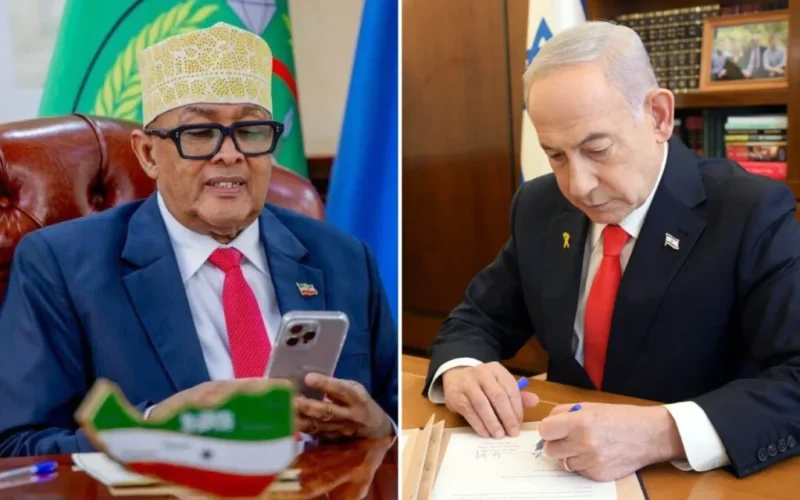
From recognition to real partnership — is Somaliland reshaping its global alliances?
Somaliland President Abdirahman Mohamed Abdillahi “Irro” is expected to travel to Israel in late March for his first official visit since Israel formally recognized Somaliland’s independence last year, according to sources cited by The Jerusalem Post.
The visit marks a significant diplomatic milestone. In December, Israel became the first country to formally recognize Somaliland since it declared the restoration of its 1960 independence in 1991. That move reshaped regional calculations and elevated Somaliland’s international profile.
President Irro’s trip is expected to focus not only on symbolic diplomacy but on practical cooperation. Somaliland officials are seeking to deepen engagement in technology, agriculture and innovation — sectors where Israel has built a global reputation. The aim, according to reports, is to translate recognition into tangible economic gains and institutional capacity-building.
The invitation for the visit followed a high-level virtual meeting on December 26 between Irro and Israeli Prime Minister Benjamin Netanyahu, shortly after Israel announced recognition.
The outreach to Israel comes as Somaliland simultaneously intensifies efforts to engage Washington. Khadar Hussein Abdi, Somaliland’s Minister of the Presidency, recently indicated the territory would consider offering the United States exclusive access to mineral resources and potential military facilities in exchange for diplomatic recognition.
That dual-track diplomacy — strengthening ties with Israel while courting the United States — underscores Somaliland’s broader strategy: leverage strategic geography, untapped mineral potential and regional security relevance to secure international legitimacy.
For Israel, the relationship offers a foothold along the Red Sea corridor, a waterway critical to global trade and regional security.
For Somaliland, the upcoming visit represents more than protocol. It is a calculated step in a decades-long campaign for recognition — and a signal that Hargeisa is willing to anchor its future in new alliances if traditional diplomatic doors remain closed.
Somaliland
Somaliland Puts Minerals and Bases on the Table for Washington
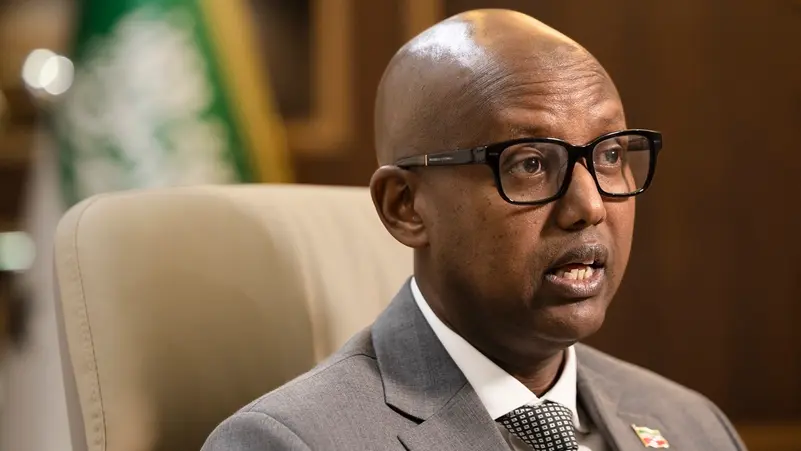
Minerals, military bases, and recognition — Somaliland is raising the stakes in its push for global legitimacy.
Somaliland has signaled it is prepared to grant the United States access to its mineral resources and potentially host American military bases, as the republic intensifies its campaign for international recognition.
Khadar Hussein Abdi, minister of the Somaliland presidency, told AFP that Hargeisa would be willing to offer Washington exclusive access to strategic minerals and open discussions on military cooperation.
“We are willing to give exclusive access to our minerals to the United States. Also, we are open to offering military bases,” he said, adding that Somaliland hopes to reach an understanding with Washington.
The remarks come months after Israel became the first country to formally re-recognize Somaliland’s independence in December — a diplomatic breakthrough for Somaliland.
President Abdirahman Mohamed Abdullahi has also floated the idea of granting Israel privileged access to mineral resources. Abdi did not rule out the possibility of Israel establishing a military presence as well.
Somaliland is believed to hold significant deposits of lithium, coltan and other critical minerals increasingly sought after for electric vehicles, renewable energy technology and advanced electronics. Its strategic coastline along the Gulf of Aden, near key Red Sea shipping lanes, further enhances its geopolitical value.
The United States has defended Israel’s right to recognize Somaliland, though President Donald Trump has indicated he is unlikely to follow suit, despite backing from some Republican lawmakers.
Abdi also addressed concerns raised by Turkey, which objected to Israel’s recognition move. He urged Ankara to engage directly with Somaliland rather than Mogadishu, arguing that Somalia’s federal government lacks cohesion.
“It is fragmented factions who sit in Mogadishu,” he said, asserting that focusing solely on Somalia’s central authorities does little to advance regional stability.
For Somaliland, the strategy is clear: leverage its strategic geography and natural resources to attract powerful allies. Whether Washington or other global players are ready to reciprocate remains the defining question.
Somaliland
Irro: Ethiopia Cargo Pact Nears, Minerals Deals With U.S.
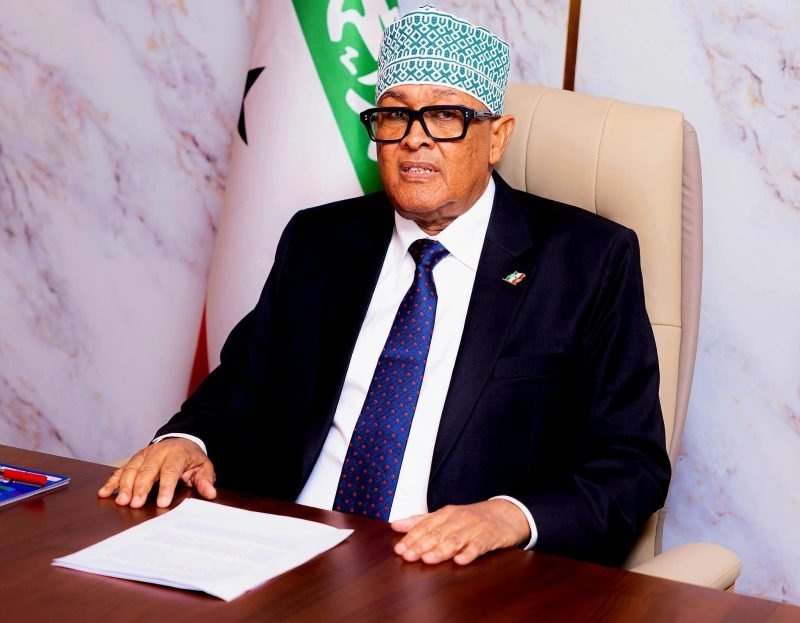
Trade corridors, oil by 2027, minerals for technology — Somaliland’s president signals an aggressive economic push.
Abdirahman Mohamed Abdullahi Irro said a cargo and trade agreement with Ethiopia is close to completion, underscoring his administration’s push to position Somaliland as a regional investment hub.
In an interview with CNN Business Arabic, Irro said negotiations over a cargo agreement are progressing and expressed hope that the deal would be finalized soon. The agreement is expected to deepen commercial ties between the landlocked Horn of Africa nation and Somaliland’s ports, reinforcing cross-border trade flows.
Irro said his broader goal is to create a peaceful and stable economic zone where trade can flourish. He emphasized Somaliland’s readiness to enter agreements with international partners, including the United States, particularly in the development and export of precious minerals.
The president also referenced a potential trade arrangement with Israel, first mentioned in a recent interview with Reuters, involving the sale of minerals in exchange for advanced Israeli technology and equipment.
To attract foreign capital, Irro said investors would benefit from long-term tax incentives and opportunities in sectors such as mining, hydrocarbons and marine resources. He added that two companies are currently engaged in oil development projects, with production targeted for 2027.
Highlighting Somaliland’s economic potential, Irro cited mineral deposits, oil and gas reserves, fisheries, tourism assets and arable land. He also noted that while Somaliland has domestic banks, his government is encouraging international financial institutions to establish branches in Hargeisa to ease investment flows.
The remarks signal an assertive economic strategy aimed at diversifying partnerships and strengthening Somaliland’s trade corridors, particularly as regional competition for investment intensifies.
Comment
Turkey’s Expanding Military Role in Somalia Raises Strategic Questions for Somaliland

Ankara says “stability.” Somaliland sees risk. The Horn of Africa is entering a new strategic chapter — and the stakes are rising fast.
When Turkish warships docked in Mogadishu, alongside reports of F-16 fighter jet deliveries and offshore drilling plans, the signal was unmistakable: Ankara is deepening its footprint in Somalia. For Somaliland — whose collective memory still carries the trauma of the 1988 bombardment of Hargeisa by the regime of Siad Barre — the optics alone are unsettling. Military expansion in Mogadishu is rarely viewed as defensive. It is viewed through history.
Yet a sober assessment of the Turkey–Somalia defense and economic framework suggests a more complex reality. Turkey is unlikely to launch — or support — an offensive campaign against Somaliland. The strategic costs would be immense.
As a key member of NATO, Ankara positions itself as a regional stabilizer, not a proxy combatant in Somalia’s internal territorial disputes. An unprovoked escalation against a relatively stable and democratic territory with informal ties to the United Kingdom, the UAE and Ethiopia would undermine Turkey’s diplomatic standing at a time when it seeks influence across Africa and the Red Sea corridor.
Economics also act as a restraint. Turkey’s maritime doctrine — often described as the “Blue Homeland” — prioritizes sea lanes, energy access and trade routes. A regional war would jeopardize precisely the offshore prospects and shipping stability Ankara hopes to cultivate. Investors do not drill in active conflict zones.
Ethiopia further complicates any military calculus. Somaliland’s memorandum of understanding with Ethiopia creates a deterrent layer Ankara cannot ignore. Turkey maintains significant economic and defense ties with Addis Ababa; it is unlikely to risk indirect confrontation over Mogadishu’s maximalist claims.
Still, the danger lies less in intent than in imbalance. Advanced aircraft in a fragile security environment introduce new variables. Even if initially deployed against Al-Shabaab, the capability itself alters regional power equations. History in Somalia has shown how quickly state assets can be redirected.
Maritime cooperation carries similar risks. If Turkish-trained Somali naval units patrol waters claimed by Somaliland — particularly near the vital Berbera corridor — even minor incidents could escalate into diplomatic crises.
The most combustible element may be energy exploration. Should Turkish drilling vessels operate in offshore blocks Somaliland considers within its jurisdiction, a commercial venture could morph into a sovereignty dispute with international implications.
Turkey is not preparing an invasion. It is consolidating influence — military, economic and maritime — in a strategically vital region. For Somaliland, the challenge is not alarmism but strategy: direct engagement with Ankara, stronger regional integration with Ethiopia, and early internationalization of maritime boundary concerns.
In the Horn of Africa, power shifts rarely announce themselves loudly. They unfold quietly — until they don’t.
Somaliland
Irro: Somali Unity Must Start Beyond Somaliland
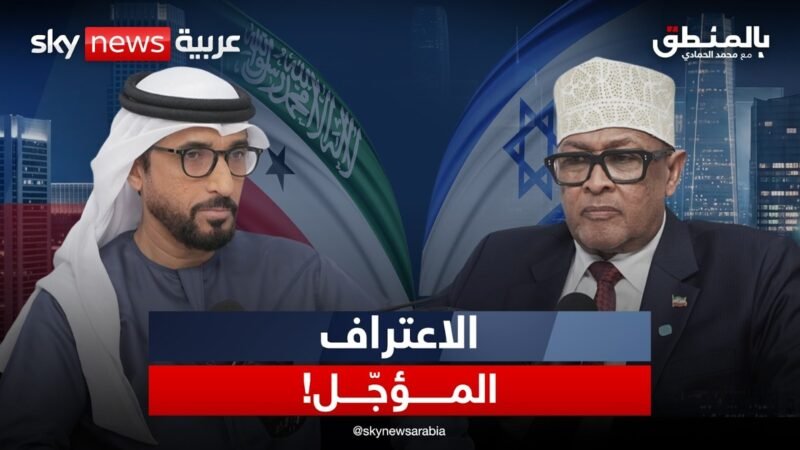
Somaliland President Abdirahman Mohamed Abdullahi Irro has said that calls for Somali unity are misplaced unless they first include other Somali-inhabited territories in the Horn of Africa, arguing that Somaliland’s status should only be discussed after those regions are unified with Somalia.
Speaking to Sky News Arabia, Irro said that if genuine Somali unity is the goal, then Djibouti, the Somali Regional State of Ethiopia, and Kenya’s Northeastern Frontier District should be part of that conversation first.
“If Somali unity is desired, Djibouti should join Somalia, it used to be part of it; the Somali Region of Ethiopia should not join Somalia; the NFD should not join. If the world wants Somali unity, they should unite,” Irro said, questioning why the union between Somalia and Somaliland is treated as unique.
He argued that many governments misunderstand Somali history, noting that Somali territories were divided into five parts during the 1884 Berlin Conference. Somaliland, he said, became the first Somali territory to gain independence in 1960 and was recognized by 35 countries, including Israel.
Irro said Somalilanders quickly rejected the union with Somalia after independence due to abuses and marginalization, making any future reunification impossible. “Another union is never possible,” he said.
Tensions between Somaliland and the Somalia federal government resurfaced late last year following Israel’s recognition of Somaliland, a move that angered leaders in Mogadishu.
Somaliland continues to push an international diplomatic campaign seeking formal recognition, insisting its case is rooted in history, sovereignty and the will of its people.
Opinion
The Unfinished Genocide: A Strategy Repeated
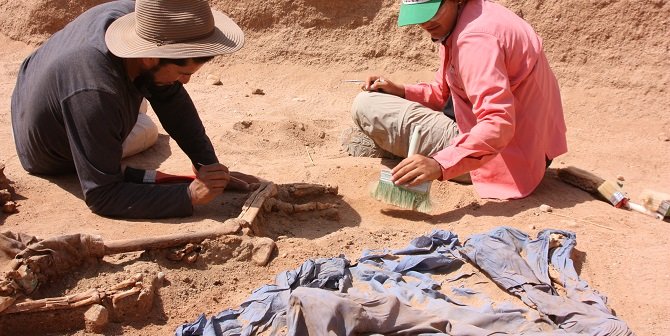
Mapping the Perpetual Threat: Foreign Intervention and the Siege of Somaliland’s Sovereignty.
By Mo Saeed
Introduction:
This report examines two distinct but thematically linked allegations concerning external military intervention in Somaliland. The first is a well-documented historical case: the hiring of foreign mercenary pilots by the Mohamed Siad Barre regime to conduct a brutal aerial campaign against Hargeisa and other northern cities in 1988–1989. The second is a contemporary genocide against Somaliland that the current Federal Government of Somalia is seeking military support from Turkey, Egypt, and Saudi Arabia for similar purposes. This analysis aims to present the available facts, highlight potential parallels, and assess the implications of such external involvements.
The Historical Case:
Foreign Mercenaries in the 1988–1989 Bombing Campaign:
In May 1988, the Somali National Movement (SNM) launched a major offensive in northern Somalia (present-day Somaliland), capturing parts of Hargeisa as they could no longer watch Barre’s regime systematically wiping Isaq people out from the Horn of Africa . The Siad Barre regime responded with a massive and indiscriminate military campaign aimed at crushing the rebellion and terrorizing the civilian population, actions widely characterized as war crimes and crimes against humanity. The Isaaq genocide, also known as the Hargeisa Holocaust.
Recruitment and Origin of Pilots:
To supplement its air force, the Barre regime hired foreign mercenaries . These pilots were primarily recruited from South Africa and former Rhodesia (Zimbabwe).
One specific account notes that “bombing raids on the towns for one month were conducted mainly by mercenaries recruited in Zimbabwe.
These mercenaries operated during the peak of the conflict in 1988–1989. They flew missions from the Hargeisa airport, targeting not only SNM positions but also conducting widespread, indiscriminate bombing of civilian areas in Hargeisa and surrounding regions. Their role was to provide the regime with additional aerial strike capacity for a campaign of collective punishment.
The objective was to support the Somali army in suppressing the civilians uprising by terrorising the civilian population through sustained aerial bombardment. This campaign resulted in the destruction of a large part of Hargeisa, Burao and caused thousands of civilian casualties, and is a central element of the planned and executed genocide against the Isaaq clan. The use of mercenaries allowed the regime to conduct this intense bombing campaign despite potential constraints within its own military.
Recent reports and statements indicate that the current Federal Government of Somalia is seeking direct military assistance from foreign states specifically Turkey, Egypt, and Saudi Arabia for operations against Somaliland with the aim of committing genocide again past genocide survivors. A prominent fact is that Somalia’s Minister of Defence requested his Saudi counterpart to conduct airstrikes against Somaliland and to facilitate the capture of its president.
Turkey already has a significant military training and infrastructure presence in Somalia. The current evidence suggests this partnership could be expanded to include direct combat support.
Egypt and Saudi Arabia are being asked by Somalia to provide aerial military capabilities, reminiscent of the mercenary model used in 1988, though ostensibly through state-to-state agreements rather than private contracts.
Turkey has already deployed F-16 fighter jets to Somalia to be precisely part of this plan.
As of February 2026, these specific evidence of requests for bombing and capture operations reflect heightened tensions between Mogadishu and Hargeisa and a genuine fear in Somaliland of a return to large-scale, externally supported violence.
Historical Parallels:
The current requests evoke a direct parallel to the 1988 strategy, the Somali government seeking external aerial firepower to resolve its 60 year occupation with Somaliland. The historical precedent shows that such outsourcing of violence can lead to disproportionate and indiscriminate attacks on civilians, with lasting humanitarian and political consequences.
Key Differences:
The historical case involved private mercenaries, while current evidence point to formal state actors.
The 1988 campaign occurred during the Cold War with less international scrutiny. Today, any such overt foreign military action would face immediate global attention and potential legal ramifications under international law.
Potential Implications:
For Somaliland this reinforces its deep-seated security fears and unhealed genocide scars and it could destabilize the relative peace maintained since the 1990s.
For Regional Stability, it could draw neighboring states into a proxy conflict, escalating tensions in the Horn of Africa.
For International Law, it would raise serious questions about the legality of cross-border military actions at the request of a government against a territory that has maintained de facto independence for decades and has legitimate and legal state continuity.
Conclusion:
The use of South African and Rhodesian mercenary pilots by the Siad Barre regime in 1988–1999 is a documented historical fact that exemplifies how external military capabilities can be harnessed for internal repression, resulting in atrocities. If Israel would not recognise Somaliland , Somalia was seeking support from Turkey, Egypt, and Saudi Arabia for assisting with their planned genocide.
The international community must remain vigilant to ensure that external military involvement, in any form, does not enable further human mainly by mercenaries recruited in Turkey, Egypt or Saudi Arabia.
This recurring threat of genocide from Somalia to Somaliland which is a de jure state underscore the critical need for the failed state of somalia respecting for international law and living peacefully with its neighbours to prevent any recurrence of the devastating genocide and violence witnessed by somaliland in the past.
Somaliland is not claiming a right to secede from a functioning state. it is reclaiming a pre-existing statehood after a failed merger. This makes its case sui generis.
By Mo Saeed
Somaliland legal research (SLR)
Somaliland
Somaliland President Attends State Dinner With UK Royal in Dubai
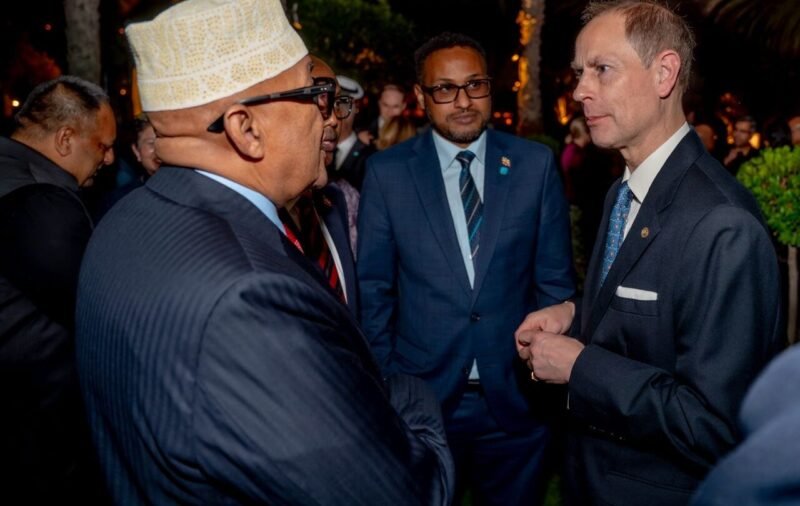
A UK royal, a key British MP, and Somaliland’s president at one table. This is diplomacy without permission — and it’s getting noticed.
DUBAI — President Abdirahman Mohamed Abdullahi of the Republic of Somaliland and the delegation accompanying him in the United Arab Emirates attended an official state dinner in Dubai on Tuesday evening, marking another high-profile diplomatic moment for Somaliland on the international stage.
The dinner was attended by Prince Edward, Duke of Edinburgh, brother of King Charles III, underscoring the level of international engagement surrounding the Somaliland delegation during its working visit to the UAE.
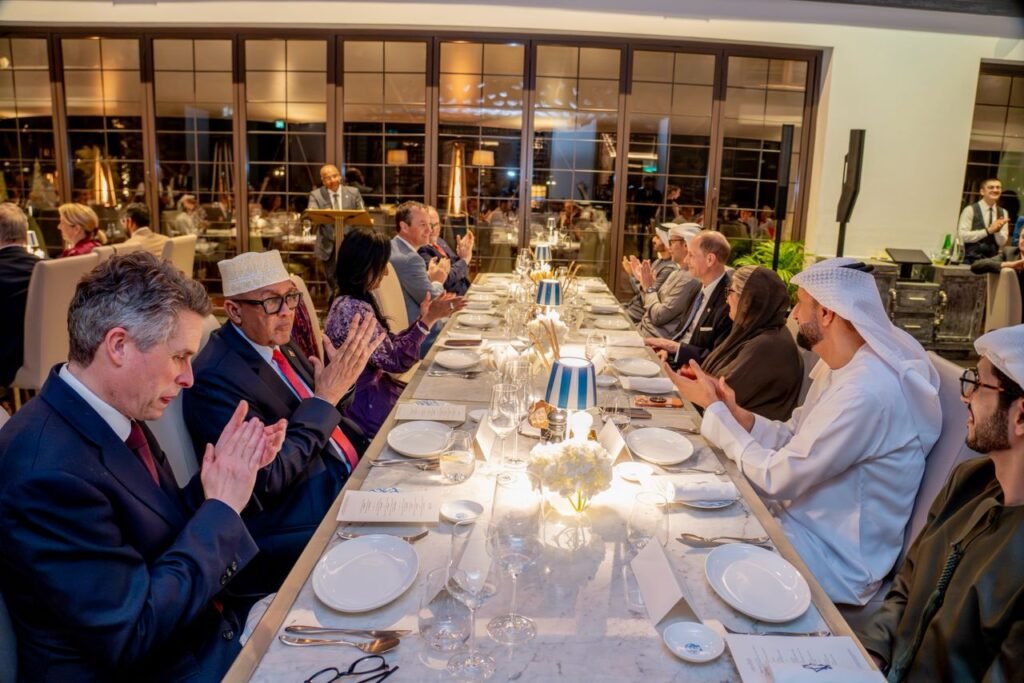
Officials described the event as a reflection of the growing diplomatic visibility and international respect Somaliland is cultivating, particularly with longstanding partners such as the United Kingdom. Somaliland and Britain share deep historical ties dating back to the British Somaliland Protectorate era, a legacy that continues to shape political and social engagement between the two sides.
Also in attendance was Sir Gavin Williamson, a member of the UK House of Commons and one of the most vocal supporters of Somaliland’s quest for international recognition. Williamson has repeatedly raised Somaliland’s case in British and international political forums and is regarded in Hargeisa as a key ally.
President Abdullahi used the occasion to express his appreciation to Williamson for what he described as consistent and principled support for Somaliland and its people. According to Somaliland officials, the president emphasized the importance of allies who continue to advocate for Somaliland’s democratic record, stability, and right to self-determination.
Discussions during the event highlighted the shared interest in strengthening cooperation across governance, development, security, and people-to-people relations. Participants also reaffirmed a mutual commitment to dialogue, peaceful coexistence, and international cooperation as foundations for future engagement.
The dinner forms part of a broader diplomatic push by Somaliland’s leadership during the UAE visit, as President Abdullahi seeks to expand international partnerships and reinforce Somaliland’s image as a stable, responsible political actor in the Horn of Africa.
Officials said the engagement once again demonstrated Somaliland’s growing confidence and effectiveness in international diplomacy, particularly in strengthening ties with traditional partners such as the United Kingdom of Great Britain and Northern Ireland.
Somaliland
Somaliland President Returns to World Governments Summit
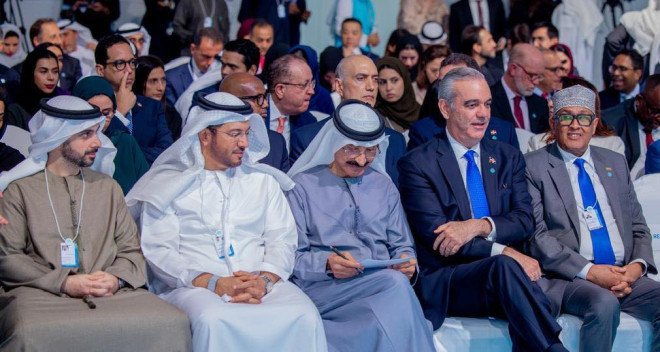
Second year in a row, Somaliland speaks where global power listens.
DUBAI — President Abdirahman Mohamed Abdullahi (Irro) has once again placed Somaliland on a major global stage, participating for the second consecutive year in the World Governments Summit, currently underway in Dubai, United Arab Emirates.
The summit, one of the world’s most influential international gatherings, brings together heads of state, prime ministers, senior ministers, global policy experts, business leaders, and international organizations to debate modern governance, leadership, innovation, and long-term state development. Its agenda is designed not around ceremony, but around how power is exercised, institutions are built, and states adapt to an increasingly volatile global order.
Irro’s repeat presence is significant. In diplomatic terms, continuity matters. Returning to the summit for a second year signals that Somaliland is no longer seeking visibility as a one-off gesture, but is positioning itself as a consistent participant in high-level global conversations. For an unrecognized state, repetition is leverage.
According to officials accompanying the delegation, President Irro is expected to hold a series of bilateral meetings with international leaders and senior officials on the margins of the summit. Those discussions are set to focus on development cooperation, stability, investment, and Somaliland’s long-term national vision—areas that align closely with the summit’s emphasis on future-oriented governance.
The diplomatic undertone of the visit is impossible to miss. Somaliland’s participation last year reportedly angered the federal government in Mogadishu, which objected to the invitation and, according to regional diplomatic sources, raised concerns with the United Arab Emirates in an effort to prevent a repeat appearance. Those efforts failed.
Relations between Mogadishu and Abu Dhabi have since deteriorated further, particularly after Somali officials accused the UAE of quietly supporting Somaliland’s recognition drive—an allegation Emirati authorities have not publicly endorsed but have also not forcefully denied. Against that backdrop, Irro’s presence in Dubai this year carries a sharper geopolitical edge.
For Somaliland, the summit offers more than symbolism. It provides a platform to present its record on peacebuilding, democratic processes, and state-building to an audience that increasingly values stability and governance capacity over formal diplomatic labels. In a world where influence is often shaped by access rather than recognition alone, Somaliland is choosing presence as its strategy.
By returning to the World Governments Summit, Irro is reinforcing a clear message: Somaliland intends to be seen, heard, and engaged—regardless of who objects.
-

 Somaliland1 month ago
Somaliland1 month agoF-35s Over Hargeisa: The Night Somaliland’s Sovereignty Went Supersonic
-

 Somalia1 month ago
Somalia1 month agoAid Destroyed, Trust Shattered: Somalia Loses U.S. Support for Good
-

 Terrorism1 month ago
Terrorism1 month agoForeign ISIS Pipeline Exposed: Puntland Captures Dozens of Non-Somali Fighters
-

 Somaliland1 month ago
Somaliland1 month agoSomaliland at Davos: The Moment Somaliland Entered the World’s Inner Circle
-

 Terrorism1 month ago
Terrorism1 month agoAmerica Pulls Back From Somalia but Doubles Down Next Door
-

 Top stories2 months ago
Top stories2 months agoSomali Pirates Hijack Chinese Fishing Vessel off Puntland Coast
-
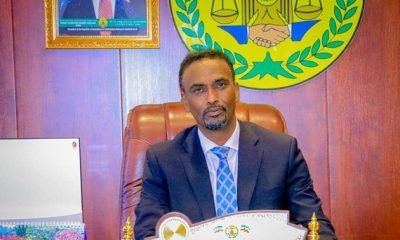
 Somaliland2 months ago
Somaliland2 months agoSomaliland Rejects Claims of Israeli Military Bases or Gaza Refugee Deal
-

 Middle East2 months ago
Middle East2 months agoUS War Plans Against Iran Enter Advanced Stage










